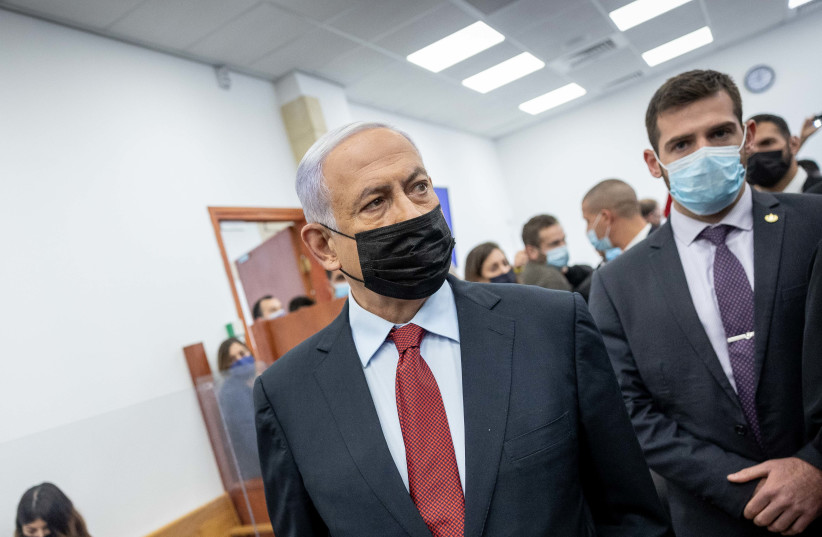Former prime minister Benjamin Netanyahu called Shlomo Filber in 2016 to yell at him for not having fired a top official in the Communications Ministry, Haran Levaot, who was slowing down the media bribery scheme with Bezeq and Walla, Filber testified on Wednesday.
Netanyahu’s former top aide and Communications Ministry director general-turned state’s witness testified in Jerusalem District Court that the former prime minister called him on a Saturday night screaming: “‘Who is this Haran? What is this Haran? What is he doing there?’ All kinds of sentences that were not clear.”
Levaot, the Communications Ministry deputy director-general for economic affairs, was leading efforts to force Bezeq to accept a number of reforms, and was trying to slow or block an allegedly problematic Bezeq-YES merger.
Filber has previously testified in the public corruption trial that even after Netanyahu fired his predecessor, Avi Berger, to clear the way for Filber to move policy toward Bezeq, Levaot and most of the experts at the ministry still tried to slow or hold up Filber’s pro-Bezeq effort.
The prosecution was presenting Netanyahu’s 2016 call to Filber as evidence that even after their initial meeting in June 2015, in which the former prime minister ordered him to favor Bezeq in government policy for the media bribery scheme, Netanyahu took strong action going forward to ensure that Filber carried out his orders.

“I won't fire him, I will deal with it,” Filber remembered telling Netanyahu, in his testimony on Wednesday. “Three months before I had wanted not to extend Haran Levaot’s contract. We disagreed about all professional issues... I was told by legal officials that I need to speak to the government civil service office. I told the civil service office that I have a deputy director-general who acts against my policies.”
The legal officials responded to Filber: “His contract gets renewed automatically. If you do not want to renew it, manufacture a file of violations against him.”
Filber understood at that point that it would be difficult to fire Levaot, which was why he told Netanyahu he would try to handle Levaot’s opposition in some other way besides firing him.
Moreover, Filber said, “there are rebukes, and [serious] rebukes. This is Netanyahu, and you need to understand the context. This is a call on a Saturday night” immediately after Shabbat ended. As Netanyahu knew that Filber was Shabbat-observant, Filber knew that this was a serious call.
Filber was more cooperative with the prosecution on Wednesday after prosecutor Yehudit Tirosh threatened to declare him a hostile witness on Tuesday, potentially revoking his immunity agreement as a state’s witness. Filber had repeatedly given answers that were a mix of the prosecution and the defense story.
Tirosh on Tuesday also won the right to question Filber using cross-examination techniques usually reserved for opposition witnesses.
The defense agreed to allow this to avoid Filber being formally declared a hostile witness to the prosecution, since the defense wants to preserve their narrative that he is hostile to Netanyahu and lying on behalf of the prosecution to save himself from prosecution.
The prosecution has pointed out that Filber made no money from helping Bezeq, and that he had no clear motivation to help Bezeq besides receiving orders from Netanyahu as part of the alleged media bribery scheme.
Filber also testified about a meeting he had with Netanyahu around January-February 2016, updating the former prime minister about initial probes into Filber’s relations with Elovitch. He said Netanyahu mostly just nodded without responding.
However at one point, Sarah Netanyahu entered the room and Benjamin Netanyahu asked her if she was still texting with Shaul Elovitch’s wife, Iris. Filber testified that Sarah said she had deleted her texts with Iris and was no longer writing her as she did not find her reliable anymore, leading the former prime minister to suggest that Sarah completely discontinue any communications with Iris in writing.
